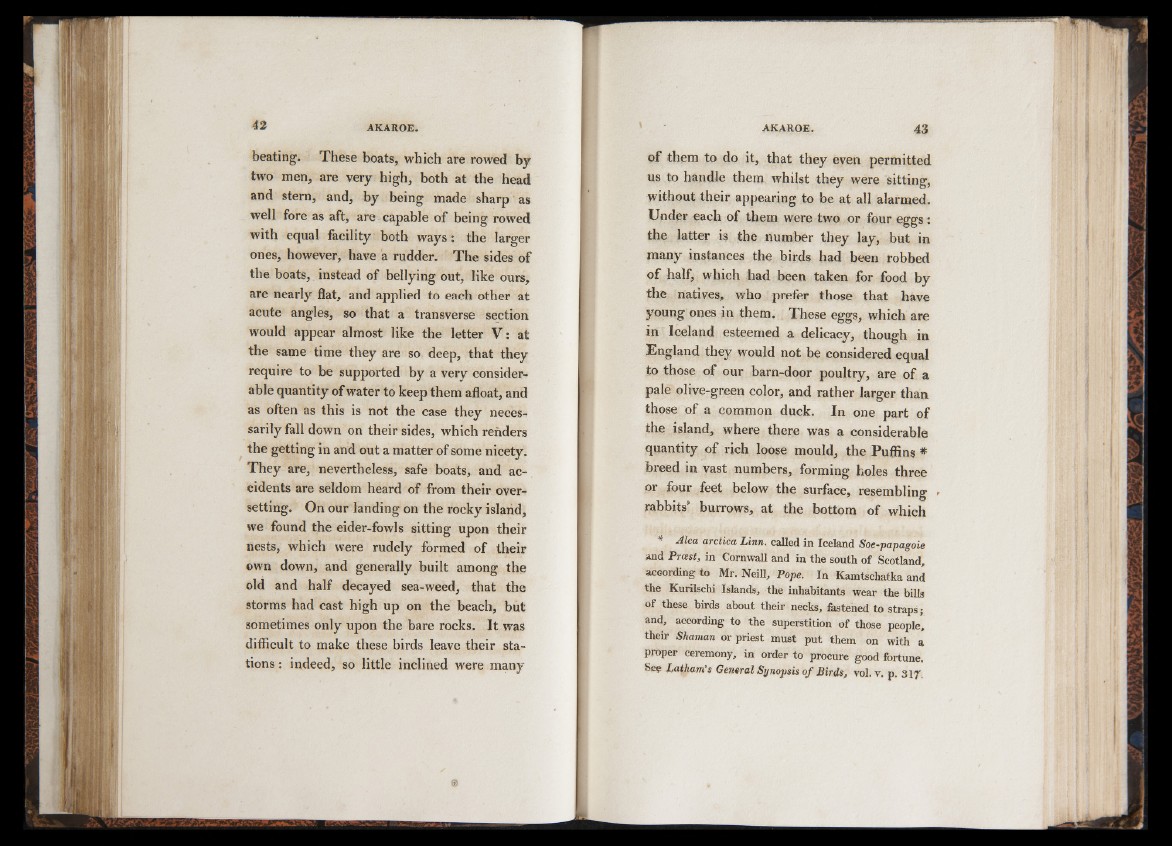
42 AKAROE.
beating. These boats, which are rowed by
two men, are very high, both at the head
and stern, and, by being made sharp as
well fore as aft, are capable of being rowed
with equal facility both ways: the larger
ones, however, have a rudder. The sides of
the boats, instead of bellying out, like ours,
are nearly flat, and applied to each other at
acute angles, so that a transverse section
would appear almost like the letter VY at
the same time they are so deep, that they
require to be supported by a very considerable
quantity of water to keep them afloat, and
as often as this is not the case they necessarily
fall down on their sides, which renders
the getting in and out a matter of some nicety.
They are, nevertheless, safe boats, and accidents
are seldom heard of from their oversetting.
On our landing on the rocky island,
we found the eider-fowls sitting upon their
nests, which were rudely formed of their
own down, and generally built among the
old and half decayed sea-weed, that the
storms had cast high up on the beach, but
sometimes only upon the bare rocks. It was
difficult to make these birds leave their stations
: indeed, so little inclined were many
AKAROE. 43
of them to do it, that they even permitted
us to handle them- whilst they were sitting,
without their appearing to be at all alarmed.
Under each of them were two or four eggs:
the latter is the number they lay, but in
many instances the birds had been robbed
of half, which had been taken for food by
the natives, who prefer those that have
young ones in them. These eggs, which are
in Iceland esteemed a delicacy, though in
England they would not be considered equal
to those of our barn-door poultry, are of a
pale olive-green color, and rather larger than
those of a common duck. In one part of
the island, where there was a considerable
quantity of rich loose mould, the Puffins *
breed in vast numbers, forming holes three
or four feet below the surface, resembling *
rabbits’ burrows, at the bottom of which
* Alca arctica Linn, called in Iceland Soe-papagoie
and Freest, in Cornwall and in the south of Scotland,
according to Mr. Neill, Pope. In Kamtschatka and
the Kurilschi Islands, the inhabitants wear the bills
of these birds about their necks, fastened to straps;
and, according to the superstition of those people,
their Shaman or priest must put them on with a
proper ceremony, in order to procure good fortune.
See Latham’s General Synopsis o f Birds, vol. v. p. 317,